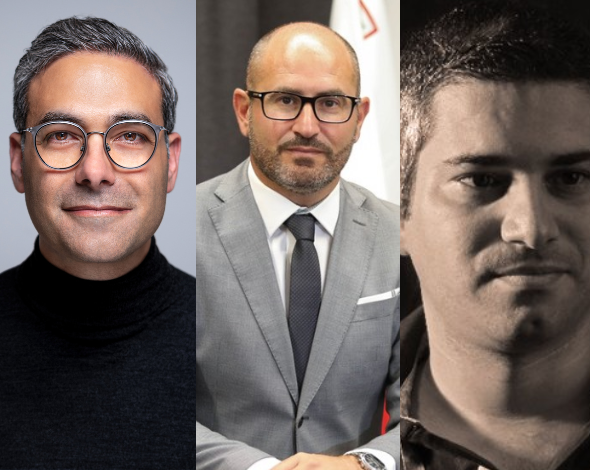EU Commission President Urusla von der Leyen has unveiled a mammoth-sized money plan to push the EU’s position in the AI race – a whopping €50 billion investAI initiative, €8 billion for AI “gigafactories” and a further €150 billion private-sector investment, effectively creating the world’s largest public-private AI partnership.
And while the figures look promising, the question remains: will this be enough to secure the EU’s positioning in the game?
“The AI race is far from over,” von der Leyen said in her speech at the AI Action summit in Paris, last week. “Global leadership is still up for grabs.”
This initiative would create four AI “Gigafactories”, large data centres specialised to train “very large AI models”, in order to boost European AI development, as part of the EU Cloud and AI Development Act, which according to the document is planned for 2026.
The AI race is just beginning.
— Ursula von der Leyen (@vonderleyen) February 11, 2025
Building on the European AI Champions initiative, I’m glad to announce InvestAI 🇪🇺
We aim to mobilise €200 billion in AI investments in Europe ↓ https://t.co/PaLTUDsVpm
While this sounds exceptional for those working in the sector, Malta’s AI experts thread carefully before celebrating just yet.
Business Now asked three leaders in the field to weigh in on the news, what this means for the EU, and what it could mean for Malta.
Gege Gatt, CEO of EBO, says that while it is a step in the right direction, disparities with other AI powerhouses are still there.
“When compared to the substantial investments by the US and China, this figure may still fall short of propelling the EU to a leading position in the global AI arena. For example: in 2024, private investment in AI-related sectors was approximately €292 billion in the US,” he told BusinessNow.
“This disparity suggests that, although the EU’s initiative is a step in the right direction, it may need to scale up its efforts to match the global pace.”
The financial aspect addresses the need for enhanced infrastructure, research capabilities, and talent acquisition, but this is not the only aspect needed.
“It is evident that this financial boost is being accompanied by streamlined regulations and a supportive ecosystem that fosters innovation. The EU must maintain an innovation-friendly regulatory framework to aid it in achieving the desired outcomes from this capital injection, otherwise the momentum will be stalled.”
Kenneth Brincat, CEO of Malta Digital Innovation Authority, treated the news with “cautious optimism”.
“My initial reaction is one of cautious optimism. We support the significant commitment and demonstrates the EU’s recognition of AI’s transformative potential. It’s a bold move. However, whether it’s enough depends on several factors.
“Competition in the AI field is fierce, and other countries in other continents, are also making substantial investments. Therefore, sustained commitment, smart allocation, and fostering collaboration will be key to achieving a leading position. It is important to note that the MDIA welcomes this initiative and looks forward to seeing how Malta can contribute to this vision,” he explained.
Strategic investment is essential to not only drive innovation but also to ensure Europe’s competitiveness and digital sovereignty.
“Regarding whether this cash injection is the right kind of thinking, I believe it is a necessary, though not sufficient, condition for success,” Dylan Seychell, a AI lecturer at University of Malta told this newsroom.
“The EU needs to focus on an overall strategy that considers the regulatory context as well. The EU AI Act needs to also be revisited to work hand in hand with this effort.”
What could this mean for Malta?
On a local level, the experts agree that it will present both opportunities and challenges.
For Dr. Gatt, this could provide the island with a competitive edge through strategic collaboration.
“As a member state, Malta could benefit from increased funding and collaborative projects, potentially enhancing its own AI capabilities and integration into broader European initiatives. However, Malta must proactively position itself to attract a fair share of this investment. This involves developing its local AI talent pool, creating favourable policies for AI development, and fostering partnerships with other EU countries,” he said.
The MDIA, according to its CEO, will look to leverage these opportunities of investment.
“The MDIA is ready to support companies and researchers to take advantage of these opportunities through the DiHubMT (Malta’s European Digital Innovation Hub). Malta can also focus on developing its AI talent pool, aligning its educational programs with the skills needed for the future of AI. EU funding can support these efforts. We believe that such investment can assist Malta in identifying niche areas within the AI landscape where it can excel, leveraging its existing strengths and the support of the EU framework.
He noted that Malta was the first European member state to establish a legal framework in digital innovation and to launch an AI Sandbox: “As regards to the latter, the MDIA will continue to sustain investment to support companies to test and develop their AI solutions in a controlled environment.”
For Dr. Seychell, the future is not so clear.
“Regarding Malta, we’re not a big player ourselves so it’s not yet clear how we can benefit directly other than winning respective funding for proposals. We’ll nonetheless benefit if the tech ecosystem in Europe is strengthened – it opens the door for collaboration, access to talent, new funding opportunities etc.”
Employers take umbrage at video promoting public sector’s flexible work arrangements
The video outlines a range of flexibility options available to public sector employees
Malta’s inflation eases to 2.5% in January as food prices remain main driver
While overall inflation continued to moderate at the start of the year, price pressures remain uneven across categories
Final call for food and beverage manufacturers to exhibit at SIAL Paris
SIAL Paris is one of the world’s leading international food and beverage exhibitions






